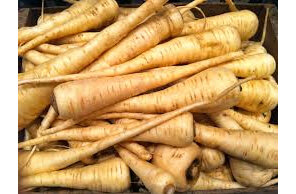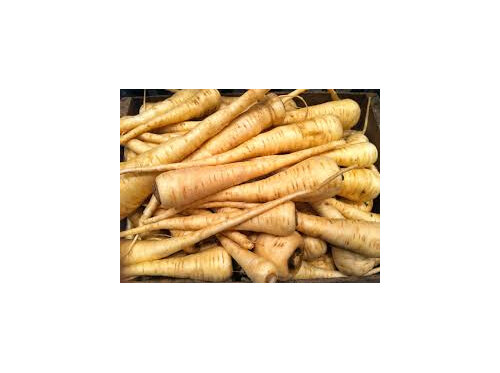Hearty winter parsnip soup, roasted, made into chips or hash browns. Great immune boosting benefits.
Parsnip (Pastinaca sativa) is a biennial plant, which means that it blooms on its second year and then dies afterwards. It is a member of the Apaiaceae family, which also includes the carrot, dill, cumin, parsley and caraway. Parsnip has such a very strong resemblance to the carrot so much so that many confuse the two. The only difference is that carrot is typically orange, while parsnip has a lighter color hue.
Historically, parsnip has been cultivated by ancient civilizations such as the Greeks and Romans. However, there are not many details to be found, because at one point, they were categorized as carrots (pastinaca) due to their similar appearances.
Parsnip is typically planted before the winter season because that’s the time it produces its unique, sweet flavor. A fully mature parsnip plant can grow up to a height of 1.5 meters tall (leaves and vegetable included). It’s a favorite among gardeners who favor cultivating crops with short growing seasons.
Health benefits refer online :)
How to Cook Parsnip
Cooking parsnip is similar to cooking a carrot. Here are a few methods you can try:
- Baking: Slice a parsnip into fries, and then bake them for a healthy alternative to French fries.
- Roasting: Sliced roasted parsnips and carrots make for a great side dish to meat-based dishes.
- Frying: Chop a parsnip into cubes and fry them in coconut oil to make a healthy hash brown.
- Add to your soup: Blend a parsnip with other vegetables and spices to make a hearty, nutritious soup.
- Recipe here for winter parsnip soup: http://foodfacts.mercola.com/parsnip
Before you cook with parsnip though, you must learn how to choose the best ones to get the best flavor. Always go for firm small or medium parsnips, because large parsnips are more fibrous and difficult to cook. Avoid those with lots of whiskers and brown patches because these typically indicate a poor-quality harvest. Ideally, you should obtain your parsnip from a certified organic farmer.







